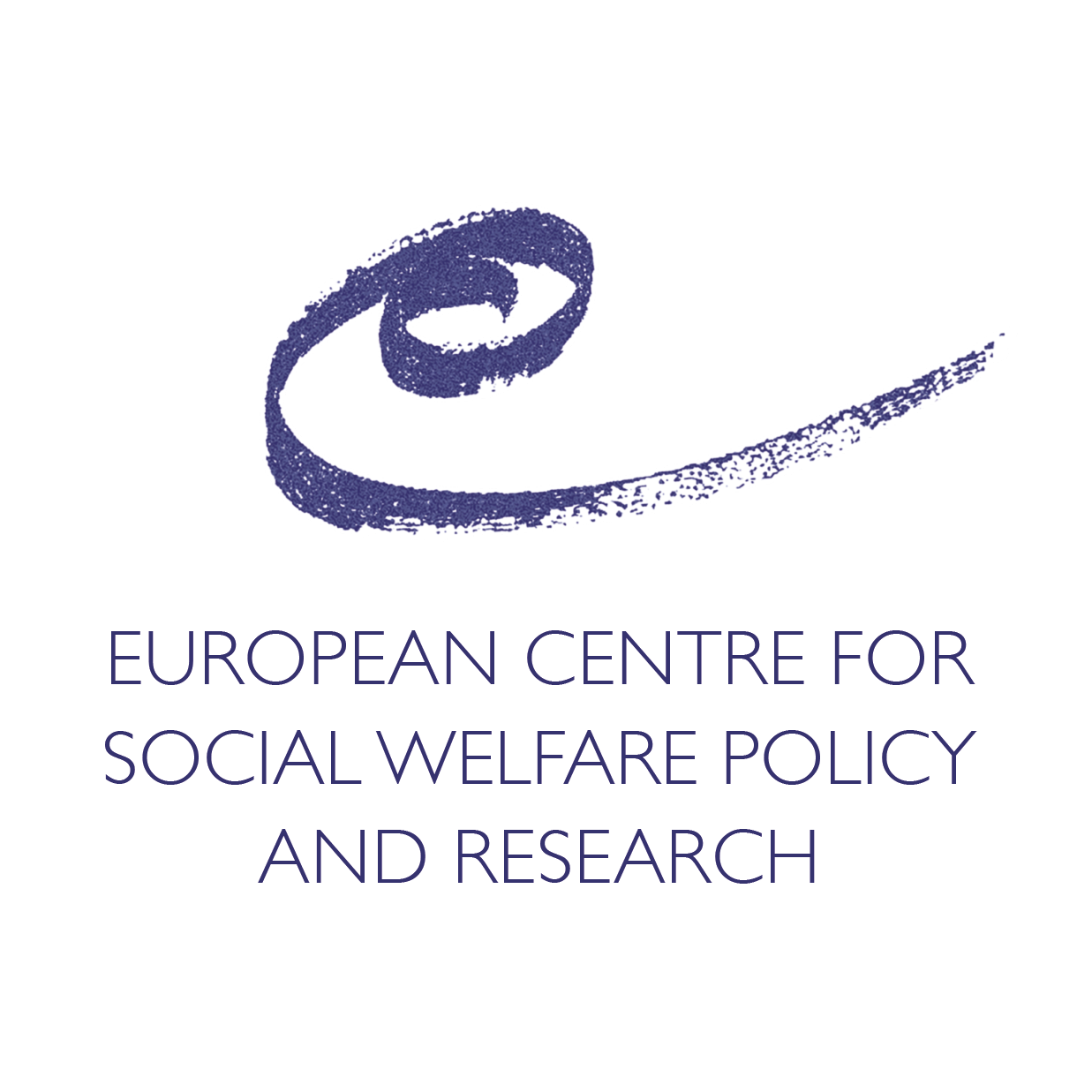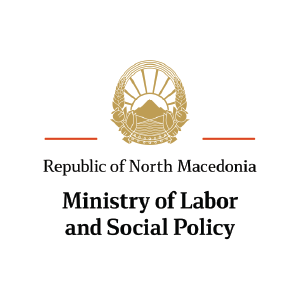The InCARE project will contribute to the design of a coherent and coordinated approach to the development of national long-term care policy and care services at local and regional level, by establishing socially innovative and participatory decision-making processes.
We work with care users, care provider organizations and policy-makers in Spain, Austria and North Macedonia to design, implement and scale-up innovative care services, with the ultimate goal of improving the well-being of older people and their families and increase their access to adequate and affordable care.
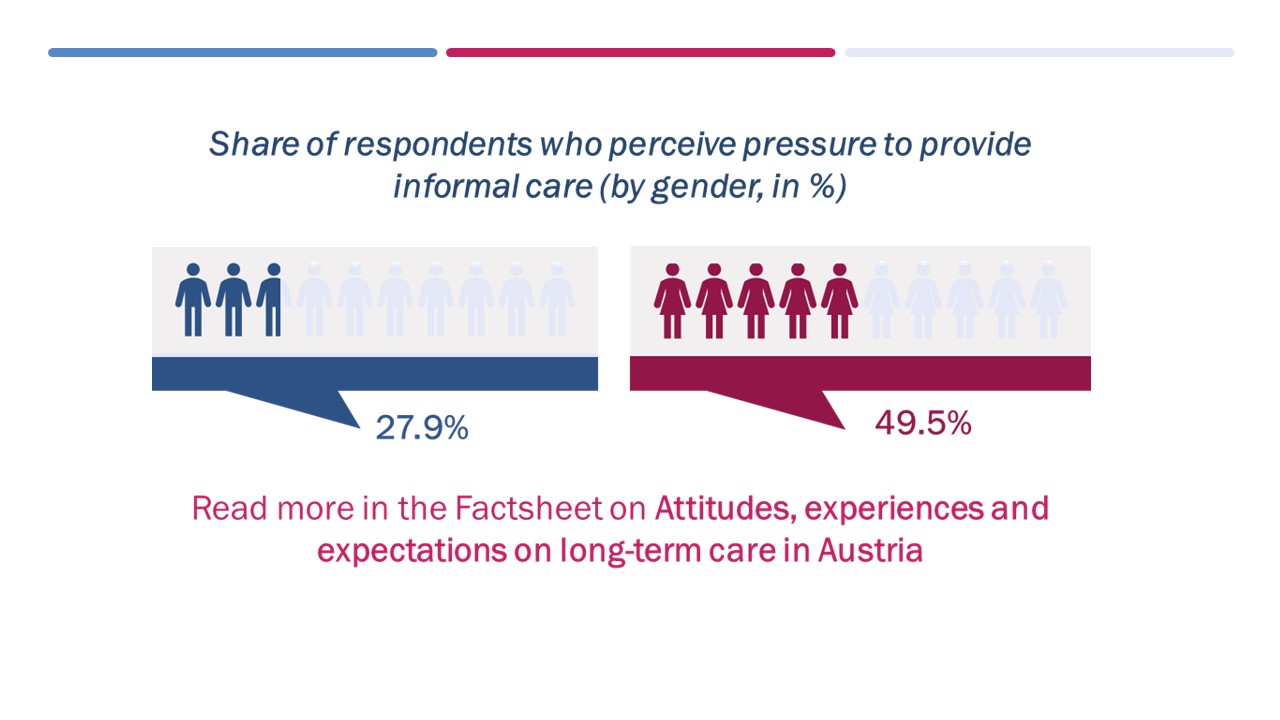
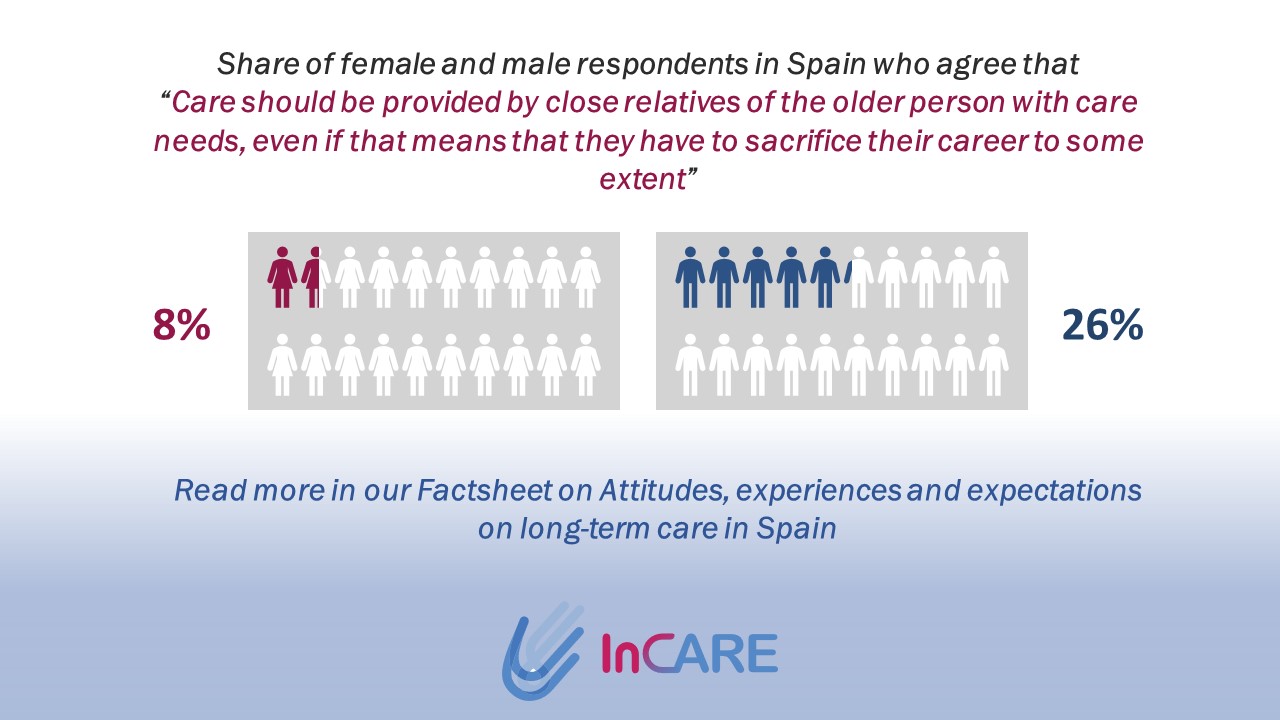
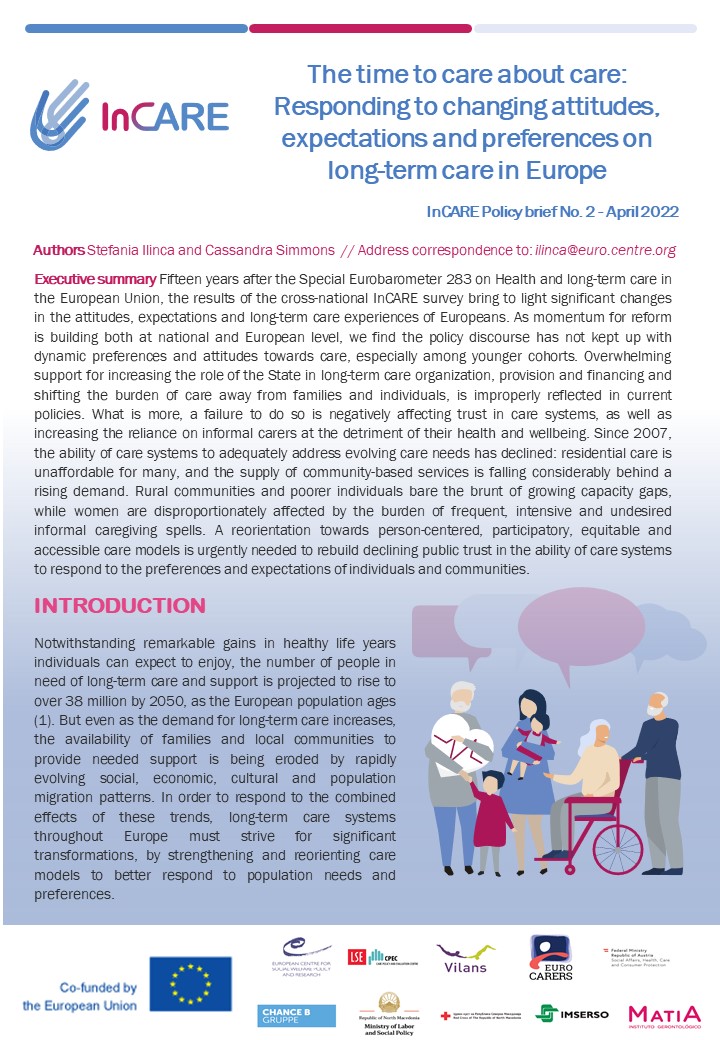
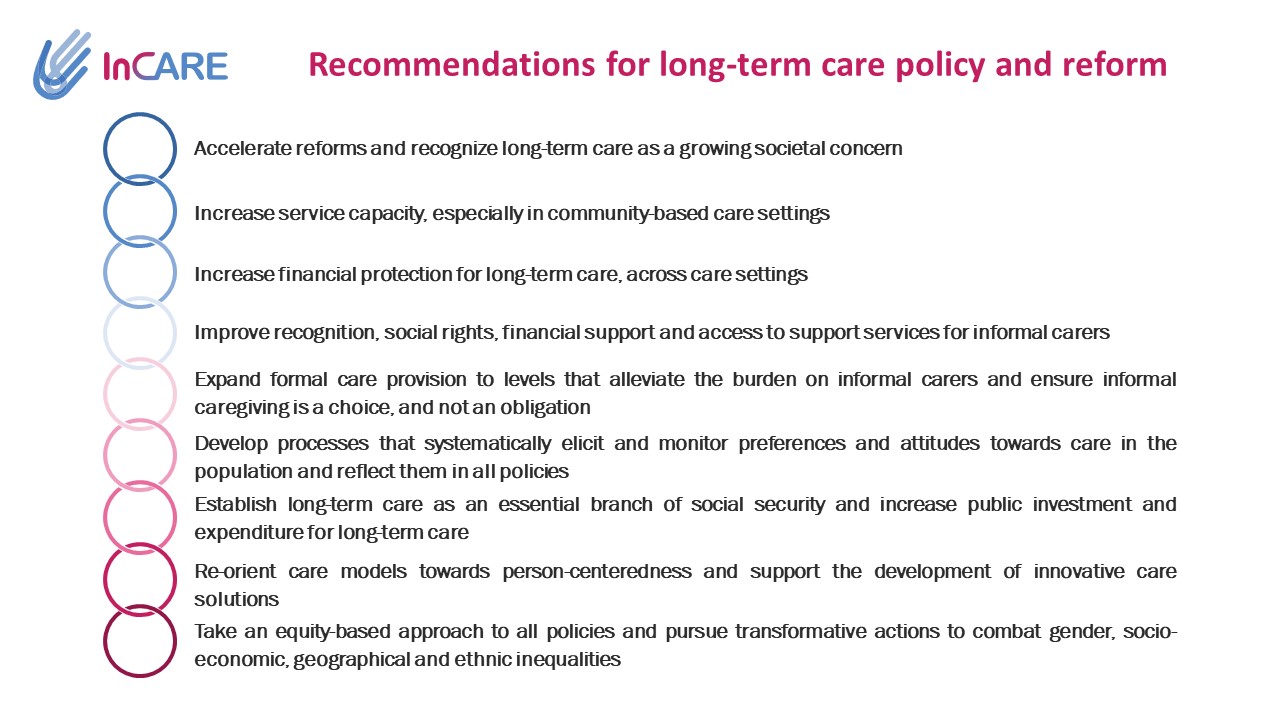
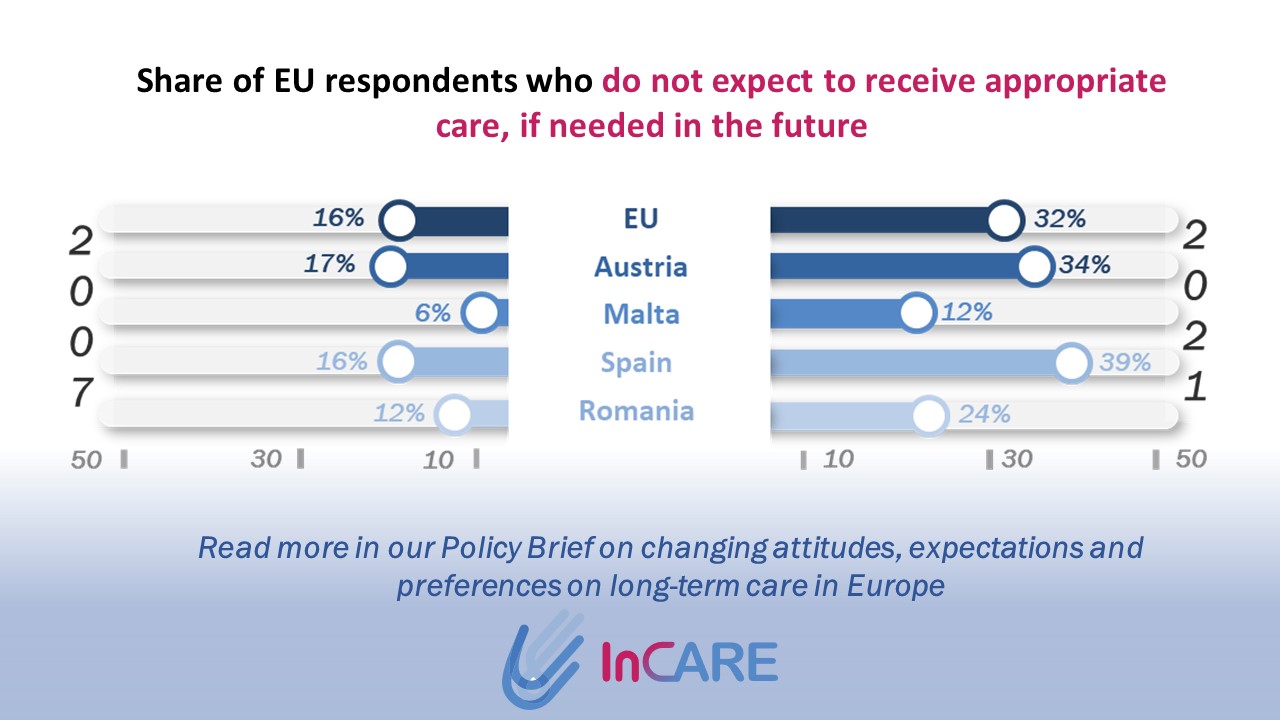
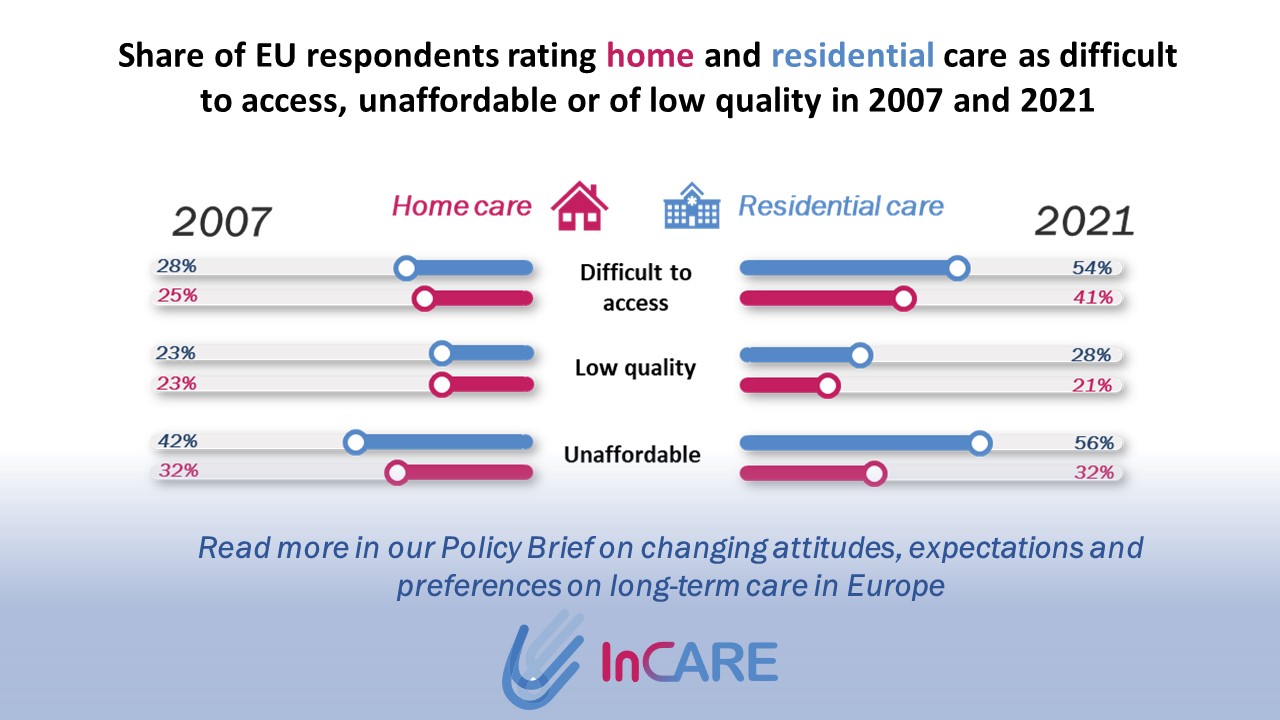
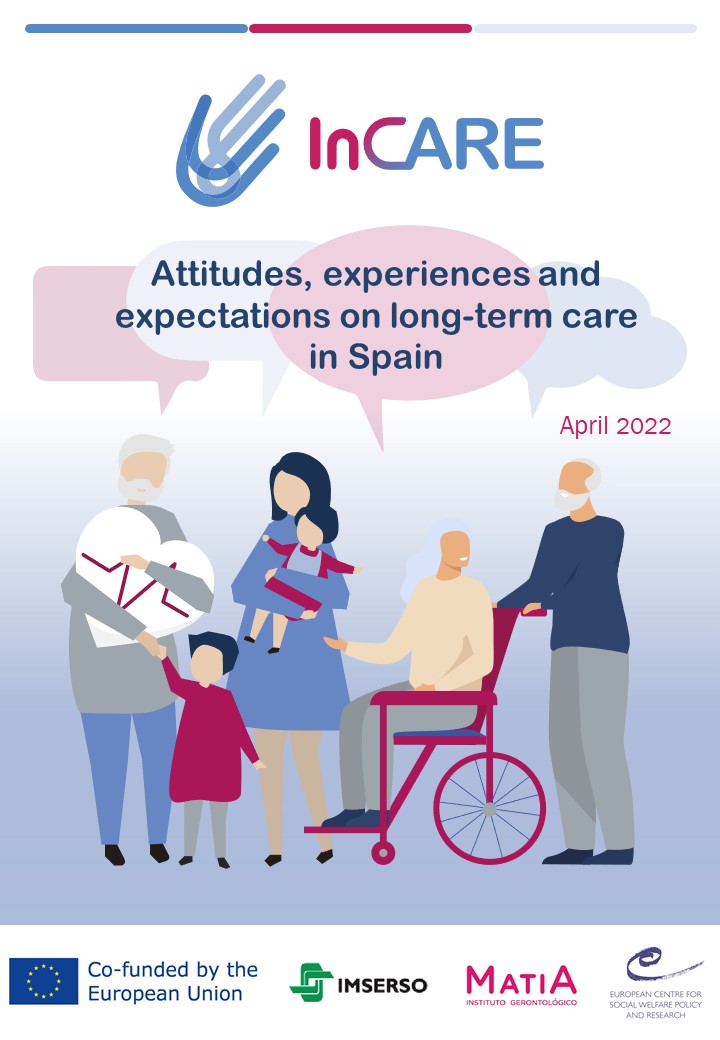
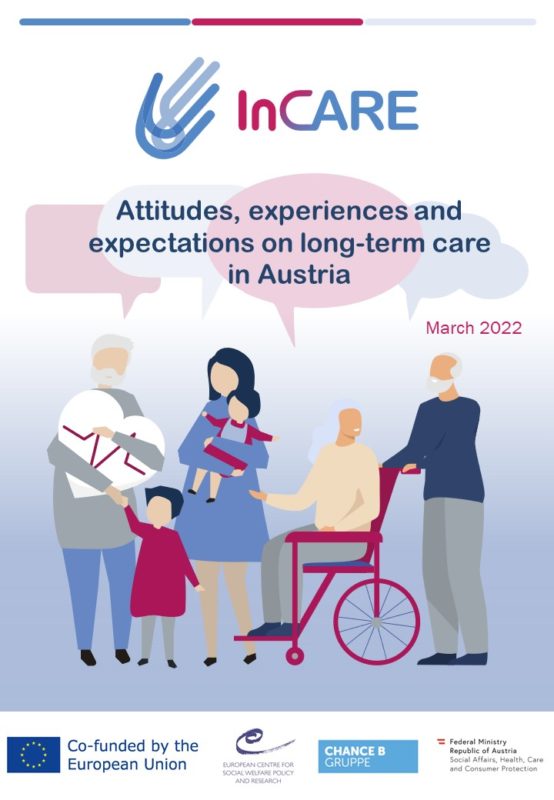
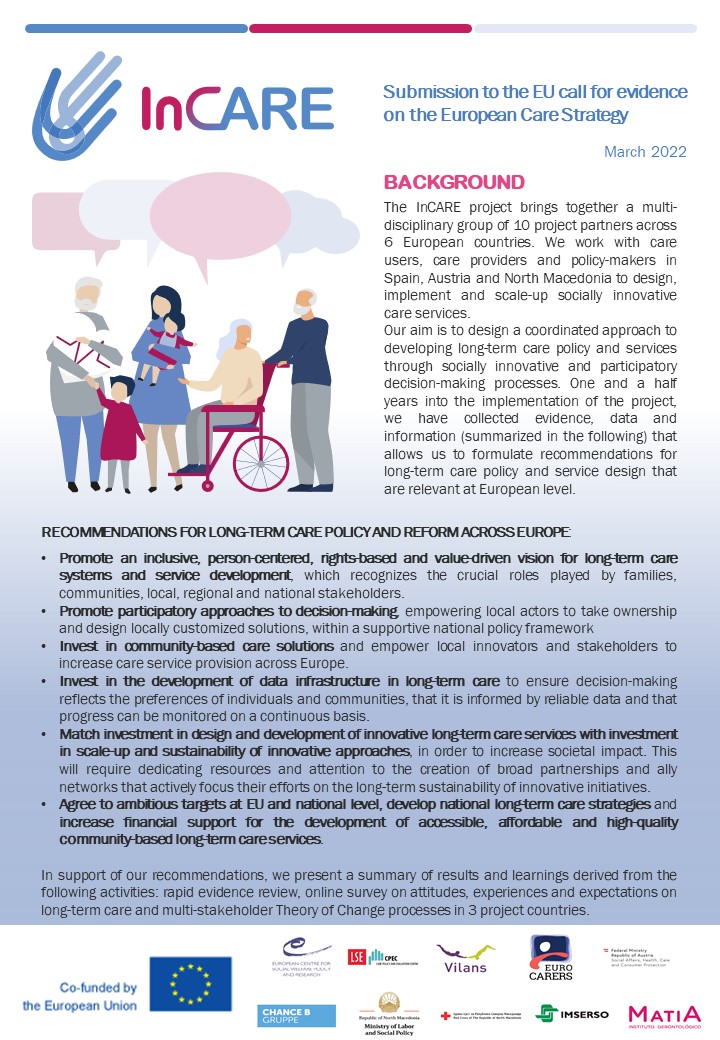









Both my parents died in a nursing home. I believe that had there been appropriate in-home care available outside of the hours of 9am to 5pm that my mother might have been able to live at home. As it was she suffered a severe fall at night and was admitted to hospital and declined there to the point that she required full-time care. The cost of overnight carers was exorbitantly expensive. The government should put more resources into providing high quality home care which doesn’t end at 5pm when patients are most vulnerable
For the past ten years, I have been providing care to my mother with dementia and complex care needs whilst at the same time raising two children alone following the break-up of my marriage due to domestic abuse, and trying to combine this with work. I am exhausted and feel completely burnt out. Caring has negatively impacted on my work and career and affected my family life. My mother has recently moved to a small scale nursing home where she is so happy and so well looked after. There is huge pressure on families to continue to look after people with highly complex care needs and I question that. There are too few small scale nursing homes in Ireland.
Start to talk openly [about] discrimination of elderly in Sweden which has been going on AT least 20 years by now [emphasis in original].

